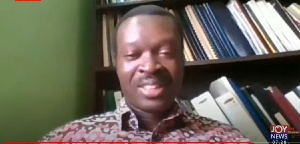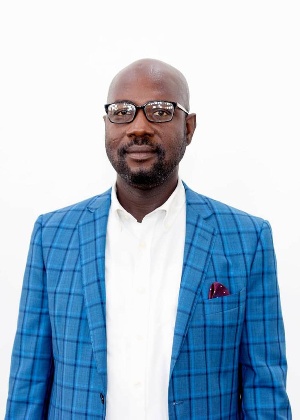- Home - News
- Elections 2024
- News Archive
- Crime & Punishment
- Politics
- Regional
- Editorial
- Health
- Ghanaians Abroad
- Tabloid
- Africa
- Religion
- Photo Archives
- Press Release
General News of Monday, 24 March 2025
Source: www.ghanawebbers.com
Holding public officials accountable is not witch-hunting – Edem Senanu
Anti-corruption campaigner Edem Senanu has praised the Attorney General's (AG) decision. The AG will pursue corruption cases against public officials. Senanu emphasized that accountability is not witch-hunting.
In an interview on Joy FM's Top Story, Mr. Senanu said this move shows a change in governance. Corrupt acts are more likely to be uncovered now.
He stated, “Public officers engaging in such actions will recognize the terrain is changing.” He expects strong cases that can secure convictions.
Senanu addressed concerns about political motivations behind the investigations. He stressed that holding past officials accountable is necessary for every new government. “That’s not witch-hunting; that’s accountability,” he asserted.
His comments followed investigations into Kwabena Adu-Boahene, former Director-General of the National Signals Bureau (NSB). These investigations uncovered properties and suspicious financial transactions linked to misappropriated state funds.
Attorney-General Dr. Dominic Ayine revealed that Adu-Boahene embezzled millions intended for a cyber defense project. He allegedly diverted these funds into real estate investments in Accra and abroad.
Adu-Boahene reportedly used a private company he operated with his wife to siphon funds from a government contract. This allowed him to amass significant personal wealth over the years.
When asked if the AG has a solid case against the suspects, Mr. Senanu noted that while the AG seems confident, proving it in court is crucial.
“It’s one thing for the AG to say he has evidence,” he explained, “and another to prove it beyond a reasonable doubt.” He suggested waiting to see how it unfolds.
Senanu dismissed speculations about coincidences regarding the allegations. He believes the AG will not reveal his full case before trial.
He also called for leadership that enforces accountability across all levels of government. This includes ensuring current administration members are not shielded from scrutiny.
“The more we share information publicly and hold officials accountable,” he concluded, “the stronger the deterrent against fraud and criminality.”











